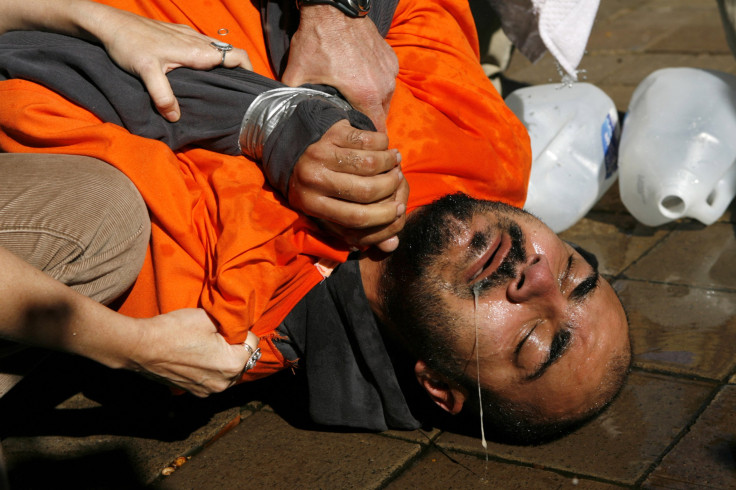Trump Administration Supporting CIA Torture? Executive Powers May Block Testimony In Lawsuit

President Donald Trump’s administration is reportedly invoking executive powers to interfere in a lawsuit that aims to hold Americans accountable for their complicity in alleged torture. Dror Ladin, a lawyer with the American Civil Liberties Union appearing on behalf of the plaintiffs, said Thursday the Trump administration is using state secrets privilege to block the testimony of several top CIA officials, including the new deputy director of the agency, Gina Haspel.
The state secret privilege is invoked to ask judges to keep selective information out of the court as it is argued that it may harm national security. Ladin said that the secret doctrine has been applied previously under the administrations of Barrack Obama and George W. Bush to deny justice to survivors of torture by shutting down their lawsuits.
“This case has shown that the claims of C.I.A. torture survivors are not too secret for our courts to handle. ... Whether or not the government’s new state secrets claims are upheld, there’s already more than enough evidence in the record for our clients to prove their case,” Ladin told the New York Times.
Read: Trump May Reopen CIA Black Site Prisons With Executive Order
The case filed in October 2015 by two former detainees and the representative of a third who died in custody is being heard in the U.S. District Court, Eastern District of Washington. It concerns two defendants — James Elmer Mitchell and John “Bruce” Jessen — who were psychologists hired by the CIA to create and execute an enhanced interrogation program at an overseas CIA facility.
The three plaintiffs — Suleiman Abdullah Salim of Tanzania, Mohamed Ahmed Ben Soud of Libya and Gul Rahman (who was captured from Islamabad and later died as a result of hypothermia while in custody in Afghanistan) — were subjected to various forms of torture ranging from regular beatings, forced rectal feeding, waterboarding, sensory and sleep deprivation, shackling in painful stress positions and confinement in coffin-like boxes, to even mock executions, according to Vice News, ACLU reports and statements recorded in the case.
The aforementioned techniques were allegedly developed by Mitchell and Jessen to cause a state of “learned helplessness” in order to break the detainees' wills. A company run by the two psychologists also made $81 million "as private profiteers from torture," Ladin said in an interview with Bloomberg.
Laden earlier said that the case bears significance as it may set a legal precedent that could, in theory, allow other prisoners to similarly claim they were victims of the U.S. war on terrorism.
The question of whether the state secret doctrine can be applied in this case to block testimonies will be resolved by Federal District Court Judge Justin L. Quackenbush. The case is set for trial on June 26.
© Copyright IBTimes 2025. All rights reserved.






















